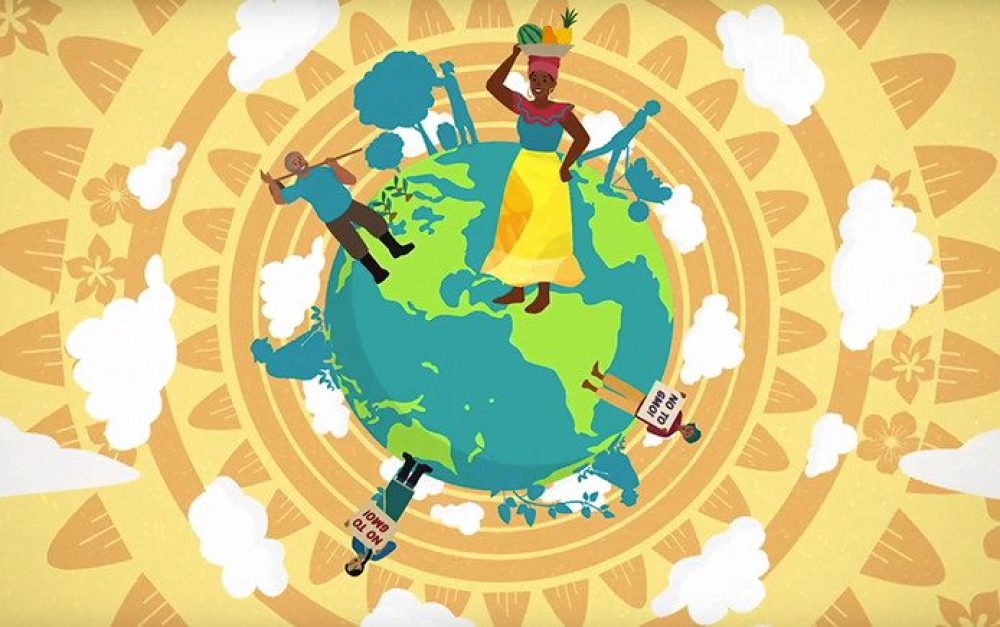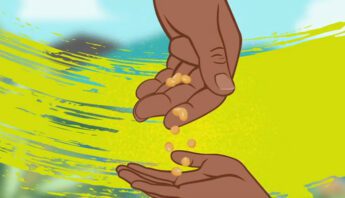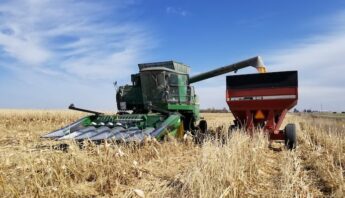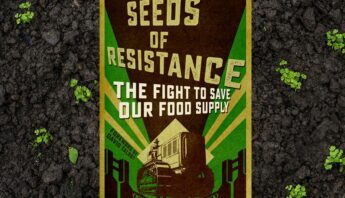Like you, we’re taking a big, deep breath as 2020 wraps up. Our local organizing is a critically important step toward a more just food and agriculture system. And we know ultimately, the solutions will take hard work from all of us — on farms and in communities around the world.
Like you, we’re taking a big, deep breath as 2020 wraps up.
Our local organizing is a critically important step toward a more just food and agriculture system. And we know ultimately, the solutions will take hard work from all of us — on farms and in communities around the world.
That’s why we’re thrilled to have launched the animated short video Seed Keepers and Truth Tellers: From the Frontlines of GM Agriculture with our partners at Hawai’i Alliance for Progressive Action and PAN Asia and the Pacific.
In this animated short, farmers from Senegal to Hawai’i, from the Philippines to Venezuela, explore the origin story of genetically modified (GM) seeds, the vast implications of industrial, chemical-intensive agriculture, and how we can build toward food sovereignty and resilience.
For years, GM agriculture has treated the farm as a factory, with “inputs” (pesticides, fertilizers) and “outputs” (crops). The primary objective is increasing yields while controlling costs, usually by exploiting economies of scale — this means large-scale, industrial monocropping of GM seeds. This corporate approach to farming undermines a healthy food and farm economy, distances farmers from their seeds and craft, and leaves farmers and consumers disconnected from sovereignty over their food supply. As Seed Keepers and Truth Tellers advisor Olga Domené-Painenao describes, GM agriculture has also been used as a tool for control:
As for corporate seed control, large agrichemical companies continue to dominate the entire chain, from production and processing to consumer products. This situation places us in a vulnerable position. As prices are set and manipulated, this is a clear manifestation of control of food as a strategy of war.
— Olga Domené-Painenao, Slow Food Agroecologists in Action (Venezuela)
2020’s challenges look different around the globe. But from contested national elections, to the COVID-19 pandemic and a myriad of food-related conflicts and climate-related natural disasters — we’re all affected.
Thankfully, we can learn from each other. There are many vibrant global initiatives underway about solutions toward a healthy, resilient, and justice-oriented future.
We have been promoting and practicing agroecology as a sustainable way of farming and producing environmentally sound and healthy food in abundance — and, it’s also an organizing tool. Agroecology can help us achieve social justice; we use our agricultural work to maintain relationships, to visit each other, to hold agroecological and solidarity brigades to work on one another’s’ farms.
—Jesús Vázquez, Organización Boricuá de Agricultura Ecológica de Puerto Rico (Puerto Rico)
Join Jesús, PAN, HAPA, and others for one such initiatve. Screen Seed Keepers and Truth Tellers today!







